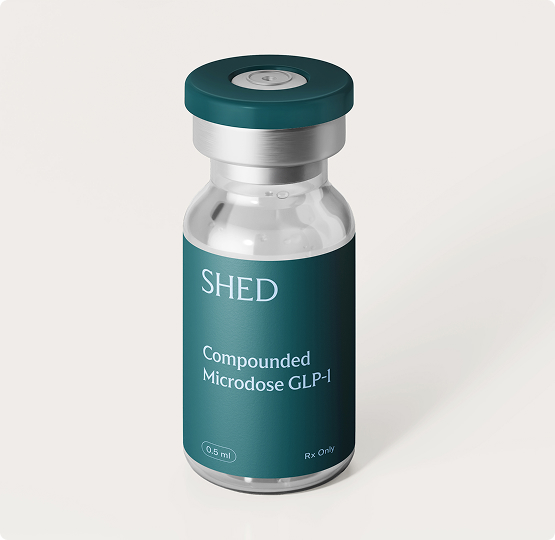Bone broth has been a staple in traditional diets for centuries, praised for its comforting flavor and nourishing qualities. Today, science backs what generations have known: Bone broth is more than just a warm drink—it’s a versatile, nutrient-rich addition to any health plan, especially for those on weight-loss treatments.
What makes bone broth so special
Bone broth is made by simmering bones, connective tissue, and aromatics like herbs and vegetables for hours. This slow cooking process releases a powerhouse of nutrients, including:
- Collagen and gelatin: Support skin elasticity, joint health, and gut lining integrity.
- Amino acids: Compounds like glycine, proline, and glutamine aid in digestion, muscle repair, and inflammation regulation.
- Minerals: Calcium, magnesium, phosphorus, and potassium contribute to strong bones and overall metabolic function.
The result? A simple, soothing, deeply nourishing beverage that delivers whole-body benefits.
How to use bone broth with intention
Incorporating bone broth into your routine is about more than drinking a cup here and there — it’s about making it part of a mindful approach to nourishment. Here’s how:
- As a warm, protein-rich snack: A cup of bone broth between meals can help curb cravings and keep you satisfied without adding unnecessary calories.
- In cooking: Use it as a base for soups, stews, sauces, or even when cooking grains to boost both flavor and nutrition.
- Post-workout recovery: Bone broth’s amino acids support muscle repair and hydration, making it an excellent option after exercise.
- As a natural electrolyte: Adding salt to taste transforms bone broth into a mineral-rich, hydrating option, perfect for replenishing electrolytes during active days or when appetite is low.
- During colder months or times of stress: Its soothing warmth can promote comfort while delivering essential nutrients.
Bone broth and weight-loss treatments
If you’re on a weight-loss treatment like GLP-1 medication, bone broth can be especially beneficial:
- Gentle on digestion: Many experience reduced appetite or occasional nausea while on these medications. Bone broth provides a nourishing option that’s easy on the stomach.
- Supports protein intake: Adequate protein is critical for preserving muscle mass during weight loss. Bone broth helps you meet your needs in a light, palatable way.
- Promotes hydration: Hydration can be a challenge when appetite decreases; bone broth delivers fluid plus electrolytes for balanced hydration.
- Encourages nutrient density: When portions are smaller, every bite (or sip) counts. Bone broth provides concentrated nutrients in an easy-to-consume form.
A simple homemade bone broth recipe
Making your own bone broth at home ensures quality, freshness, and a depth of flavor you can’t beat.
Ingredients:
- 2–3 pounds of high-quality bones (beef, chicken, or turkey—look for organic or pasture-raised if possible)
- 2 carrots, roughly chopped
- 2 celery stalks, roughly chopped
- 1 onion, quartered
- 2–3 garlic cloves, smashed
- 2 tablespoons apple cider vinegar (helps extract minerals)
- 1–2 teaspoons salt (adjust to taste)
- Water to cover
Instructions:
- Place bones, vegetables, and garlic in a large stockpot or slow cooker.
- Add apple cider vinegar and enough water to fully cover the bones.
- Bring to a gentle boil, then reduce to a low simmer.
- Simmer for at least 8 hours (up to 24 for maximum nutrient extraction), skimming off any foam.
- Strain broth, discard solids, and season to taste (add salt for an electrolyte-rich finish).
- Store in airtight containers in the fridge for up to 5 days or freeze for later use.
Enjoy a cup daily on its own, or use it as the base for soups, stews, and sauces.
Making bone broth part of your health journey
Bone broth is a simple, accessible way to nourish your body, support your weight-loss journey, and connect with a practice rooted in centuries of wellness wisdom. When used with intention, it can be a small but powerful part of building health that lasts.
How could you add bone broth into your daily or weekly routine to better support your health goals?
FAQs about bone broth
Is bone broth really good for you?
Yes! Bone broth is rich in collagen, gelatin, amino acids, and essential minerals that support joint health, digestion, immune function, and skin elasticity. Many people enjoy it as a nutrient-dense superfood that’s easy to add to a healthy lifestyle.
Can bone broth help with weight loss?
Absolutely. Bone broth for weight loss works by providing protein and amino acids that help preserve lean muscle, curb cravings, and promote satiety. Since it’s low in calories and easy on digestion, it’s especially helpful for those using GLP-1 weight-loss medications.
How often should I drink bone broth?
Aim for 1–2 cups of bone broth daily. Whether you enjoy it as a warm snack, a post-workout recovery drink, or a base for soups and stews, drinking it consistently helps maximize the benefits.
What’s the difference between bone broth and regular stock?
The main difference is in cooking time and nutrient content. Bone broth is simmered for 8–24 hours, which extracts collagen, amino acids, and minerals from the bones. Stock is usually cooked for less time and isn’t as nutrient-rich.
Can you drink bone broth on an empty stomach?
Yes. Many people start their day or break their fast with bone broth. It’s light yet nourishing, is a good source of protein, and can promote energy and hydration without overwhelming digestion.
Is store-bought bone broth healthy?
It can be, but quality varies. Look for slow-simmered bone broth with minimal ingredients, no preservatives, and low sodium. For maximum nutrient density, homemade bone broth is usually the better choice, and it tastes great too!
Can bone broth replace a meal?
While bone broth is rich in nutrients, it’s not enough to replace a full meal on its own. However, it’s an excellent low-calorie snack, fasting aid, or base for nutrient-dense soups that can be built into a complete meal.
References
https://www.health.harvard.edu/nutrition/savoring-the-benefits-of-bone-broth-worth-a-taste?
Canadian Digestive Health Foundation+8Healthline+8National Spine Health Foundation+8
Medical News Today+3National Spine Health Foundation+3Cleveland Clinic+3
.svg)









